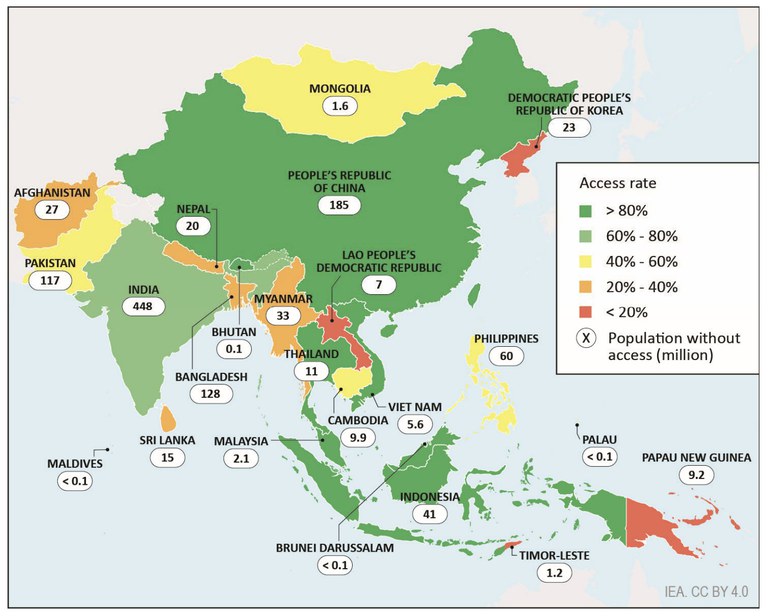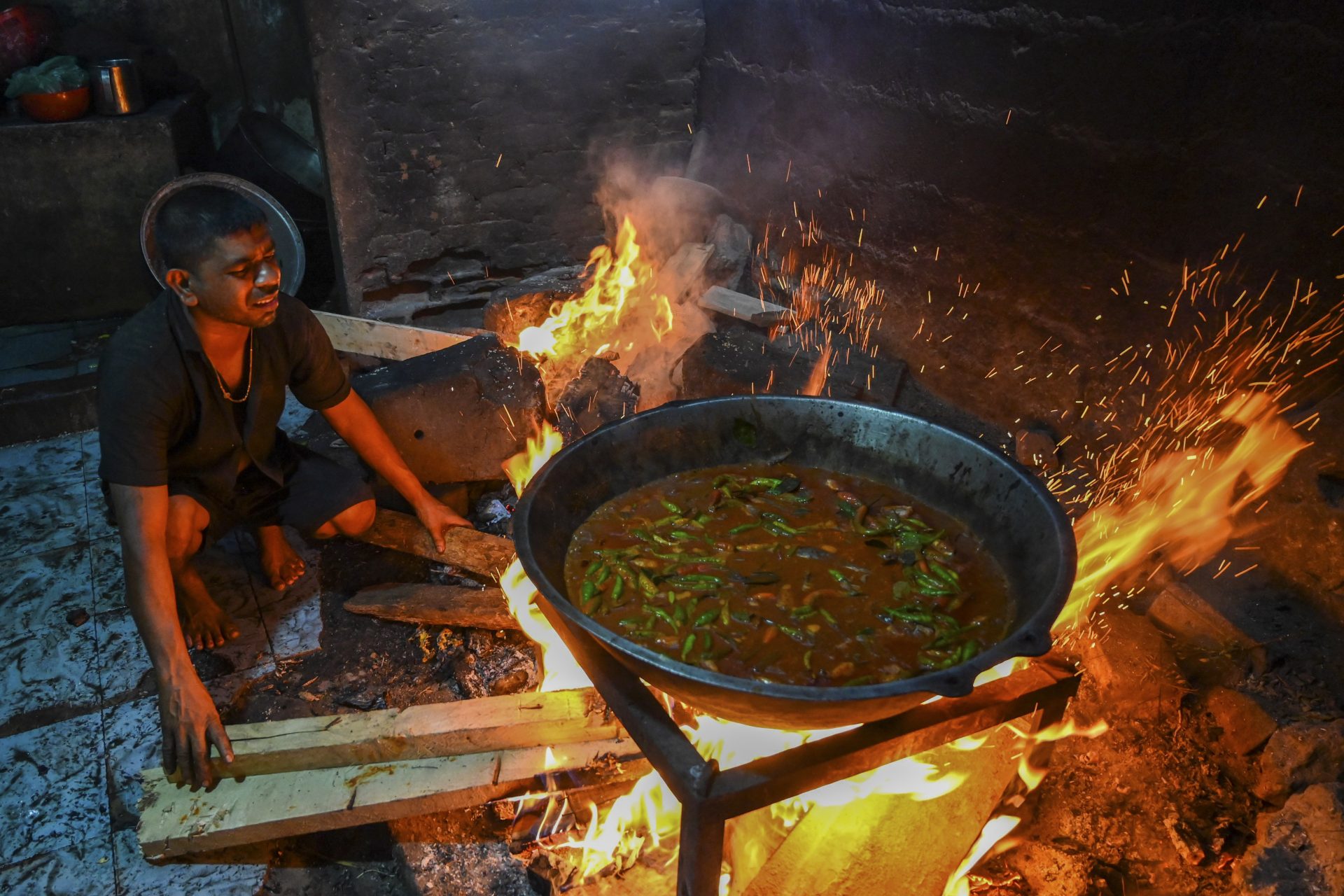Nearly one in three people worldwide still cook their meals over open fires or on rudimentary stoves, resulting in significant damage to health, living standards, gender equality and climate, according to a new report from an energy watchdog.
Some 2.3 billion people in 128 countries rely on charcoal, firewood, coal, agricultural waste and animal dung as fuel to prepare meals, causing them to breathe in harmful smoke in the process, said the report on access to clean cooking by the Paris-based International Energy Agency.
Air pollution from these basic cooking techniques results in 3.7 million untimely deaths, making it the third leading contributor to premature mortality worldwide.
Such cooking techniques utilized by communities without access to clean cooking facilities are also significant contributors to greenhouse gas emissions. The gathering of wood and charcoal for these cooking methods leads to an annual deforestation rate equivalent to the size of Austria.
The United Nations set a target in 2015 to provide everyone access to clean cooking by 2030 as part of the Sustainable Development Goals.
According to the report produced in partnership with the African Development Bank, women and children bear the brunt of harm from lack of clean cooking, which can be solved this decade with a modest investment.
Women are disproportionately burdened with collecting fuel and preparing meals, requiring about five hours of their daily time. This responsibility often hinders their opportunities to pursue education, gain employment, or start businesses that could offer them financial independence.
“Clean cooking is a topic that rarely hits the headlines or makes it onto the political agenda,” said IEA Executive Director Fatih Birol. “And yet, it’s a cornerstone of global efforts to improve energy access, gender equity, economic development and human dignity.”
“This report shows universal clean cooking access could be reached worldwide by 2030 with annual investment of U.S.$8 billion, which is just a tiny fraction of what the world spends on energy each year. Tackling this injustice is affordable and achievable.”

Asia performs well, Africa the worst
The report said the number of people globally without clean cooking fell from 3 billion in 2010 to 2.3 billion in 2022, though the global progress is limited to a handful of countries.
During the 12-year period, China, India and Indonesia halved the number of citizens who lacked clean cooking access, due to mainly free stoves and subsidized canisters of liquefied petroleum gas.
Currently, only seven countries in Asia have clean cooking access rates below 20%, including five small island nations.
In North Korea, 23 million of the 25 million population still do not have access to clean cooking, the report said, while in Lao PDR, more than 90% or 7 million still use primary cooking means that release pollutants harmful to human health.
In India, 448 million people are still without access to clean cooking, the highest in the world. Similarly, in China, Bangladesh, and Pakistan, more than 100 million people in each country continue to use cooking methods that are unhealthy.
The report said Africa’s population without clean cooking access continued to climb during the same period, with a billion people on the continent, roughly four in every five, relying on highly polluting cooking fuels.
If drastic changes are not made, most African countries are not expected to reach full clean cooking access even in the 2050s, the report said.
The IEA said that the benefits of gender equality, health and time-savings from reaching universal access to clean cooking would be immense, with premature deaths from poor indoor air quality dropping by 2.5 million annually and the average household saving at least 1.5 hours a day.
The reduction in global greenhouse gas emissions would reach 1.5 billion tonnes annually, equivalent to the current emissions from all ships and planes combined, the group said.
“Solving access to clean cooking does not require a technological breakthrough,” Birol said.
“It comes down to political will from governments, development banks and other entities seeking to eradicate poverty and gender inequality. But today, we are failing women in some of the world’s most vulnerable areas.”






